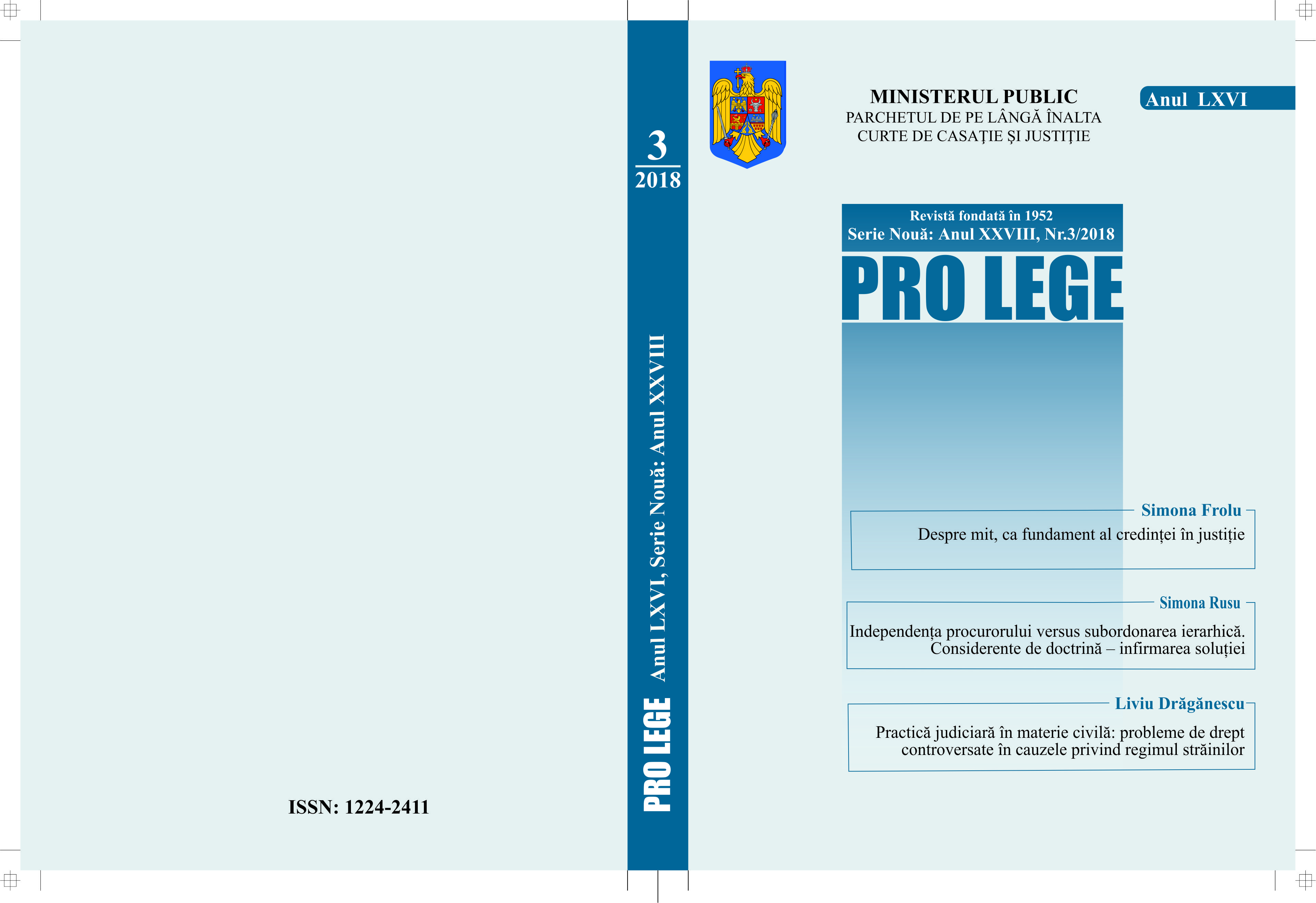Infracțiune privitoare la regimul cecului, precum și aceea de înşelăciune prin emitere de cecuri și bilete la ordin fără acoperire în formă continuată. Lipsa laturii subiective. Achitare
Offence related to the circle regime, as well as fraud by issuance of checks and promissory notes without cover in continued form. Lack of subjective side. Acquittal
Author(s): Ivan GheorgheSubject(s): Law, Constitution, Jurisprudence
Published by: Universul Juridic
Keywords: payment, check; promissory note; crime contest; continued crime; intent; deception; subjective side; change of legal classification;
Summary/Abstract: It follows from the interpretation of the law that, in order to achieve the subjective aspect of the deceitful offense, it is necessary for the perpetrator to make misleading action intentionally. The intention must be characterized by the purpose pursued by the perpetrator, since, according to par. (1) of art. 244 of the new Criminal Code, misleading action must be taken "in order to obtain an unfair patrimonial benefit for himself or for another". The patrimonial use is unfair when the perpetrator was not entitled to obtain it, and thus the acquisition of this use appears unlawful. The offense of deception, either in simple or in a qualified form, is committed only with direct intent. In order to characterize the subjective aspect of the offense of deception, the court is required to carry out a thorough analysis of all the circumstances in which the defendant has sought to produce a result he has foreseen. The evidence adduced in the case does not show that the defendant pursued the purpose of achieving for himself or for his company an unfair patrimonial benefit, other than a normal commercial profit obtained under the contractual arrangements with each of the civil parties as freight suppliers. In the case of a payment commitment which involves unilaterally assuming a pecuniary obligation vis-ŕ-vis the beneficiary, in the case of non-payment, only the contractual civil liability arising from the non-fulfillment of an obligation assumed in a contract is attracted, as long as there is no evidence of the use of fraudulent handling to the creditor of the payment obligation in one of the two moments envisaged by the legislator, namely the assumption of the obligation to conclude the contract and / or the non-fulfillment of the assumed contractual obligation. Taking into account that nine acts of deception, with nine different passive subjects, are retained in the defendant's charge, the provisions of art. 35 par. (1) of the new Criminal Code, as established by the court of first instance, provisions requiring identity of a passive subject for the confiscation of a continuous crime, but those stipulated in art. 38 par. (1) of the same code, which is why the application for change of the legal framing formulated by the Prosecutor's Office was considered to be justified in this respect. At the same time, the factual situation in question does not circumvent the offense provided in art. 84 point 2 of the Law no. 59/1934 on the check, in the sense stated by the Decision in the interest of the law no. IX/2005, issued by the High Court of Cassation and Justice, provided that it was not beyond doubt in the concrete context of the financial flows that, at the time of the issue of the checks, the issuing company did not have the necessary funds to cover the checks.
Journal: Revista Pro Lege
- Issue Year: 2018
- Issue No: 3
- Page Range: 268-291
- Page Count: 24
- Language: Romanian

